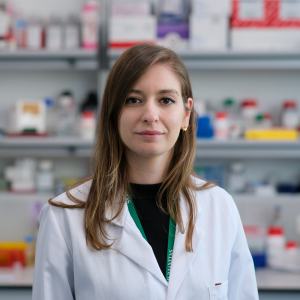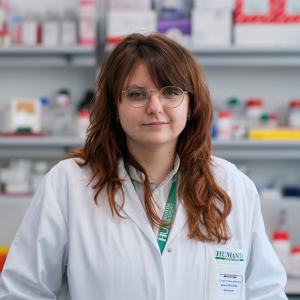Research Group
Greco Group
Circadian Metabolism Lab
Our lab investigates the impact of circadian metabolic disruptions, both within the heart and in extra-cardiac tissues, on the progression of cardiovascular diseases, by integrating high throughput techniques with in vivo and in vitro models.
The challenge
Almost all aspects of our physiology are coordinated by our biological clock, a cell-autonomous system that operates in nearly all cells of the body and that is responsible for daily rhythms in behavior, physiology and metabolism by driving the cyclical expression of a large number of clock-controlled genes. The importance of this clock function for homeostasis is demonstrated by mouse models of disrupted rhythmicity, which exhibit an array of behavioral and metabolic alterations. In humans, misalignment of circadian rhythms is associate to metabolic, cardiovascular, oncological and neurological conditions, indicating that disruptions to the clock system are a root cause of disease. We want to dissect the role of these disruptions in cardiovascular diseases, especially in heart failure, that have the potential to pave the way to new therapeutic and preventive strategies.
Main research areas
Ketone Regulation of Circadian Rhythms in Heart Failure
Heart failure is characterized by widespread metabolic changes. Among these, increased uptake and oxidation of ketone bodies is considered a hallmark of the failing heart. While ketones serve as an alternative source of energy for the heart, recent findings have revealed that the most abundant ketone is also an epigenetic modulator. By integrating high throughput and multi-omic approaches, we are investigating the epigenetic effect of metabolic changes on cardiac circadian rhythms.
Dissecting inter-organ metabolic cross-talk in heart failure
To date the majority of studies investigating the pathological mechanisms of heart failure (HF) have been carried out in a “myocardium centric” manner. Yet, HF must be considered as a multiorgan syndrome leading to functional and metabolic changes in several other organs. We are investigating how the heart communicates and affects other tissues in the initial phases of the disease, focusing on the heart-liver axis. In fact, approximately ~10% of genes and ~50% of metabolites in the liver display circadian oscillations, giving rise to oscillations in hepatic metabolism. We want to understand 0how HF rewires hepatic circadian transcriptome and metabolic function.
Selected publications
Integration of feeding behavior by the liver circadian clock reveals network dependency of metabolic rhythms.
Ketogenesis impact on liver metabolism revealed by proteomics of lysine β-hydroxybutyrylation.
Expanding the link between circadian rhythms and redox metabolism of epigenetic control.
S-adenosyl-l-homocysteine hydrolase links methionine metabolism to the circadian clock and chromatin remodeling.
A non-pharmacological therapeutic approach in the gut triggers distal metabolic rewiring capable of ameliorating diet-induced dysfunctions encompassed by metabolic syndrome.
Personalized medicine and circadian rhythms: Opportunities for modern society.
Circadian blueprint of metabolic pathways in the brain.
DNA hydroxymethylation controls cardiomyocyte gene expression in development and hypertrophy.
Epigenetic modifications and noncoding RNAs in cardiac hypertrophy and failure.
Chemotactic effect of prorenin on human aortic smooth muscle cells: a novel function of the (pro)renin receptor.
Group members




